Electric quanting: traditional sailboats on the Norfolk Broads replace manual barge poles with Torqeedo electric motors
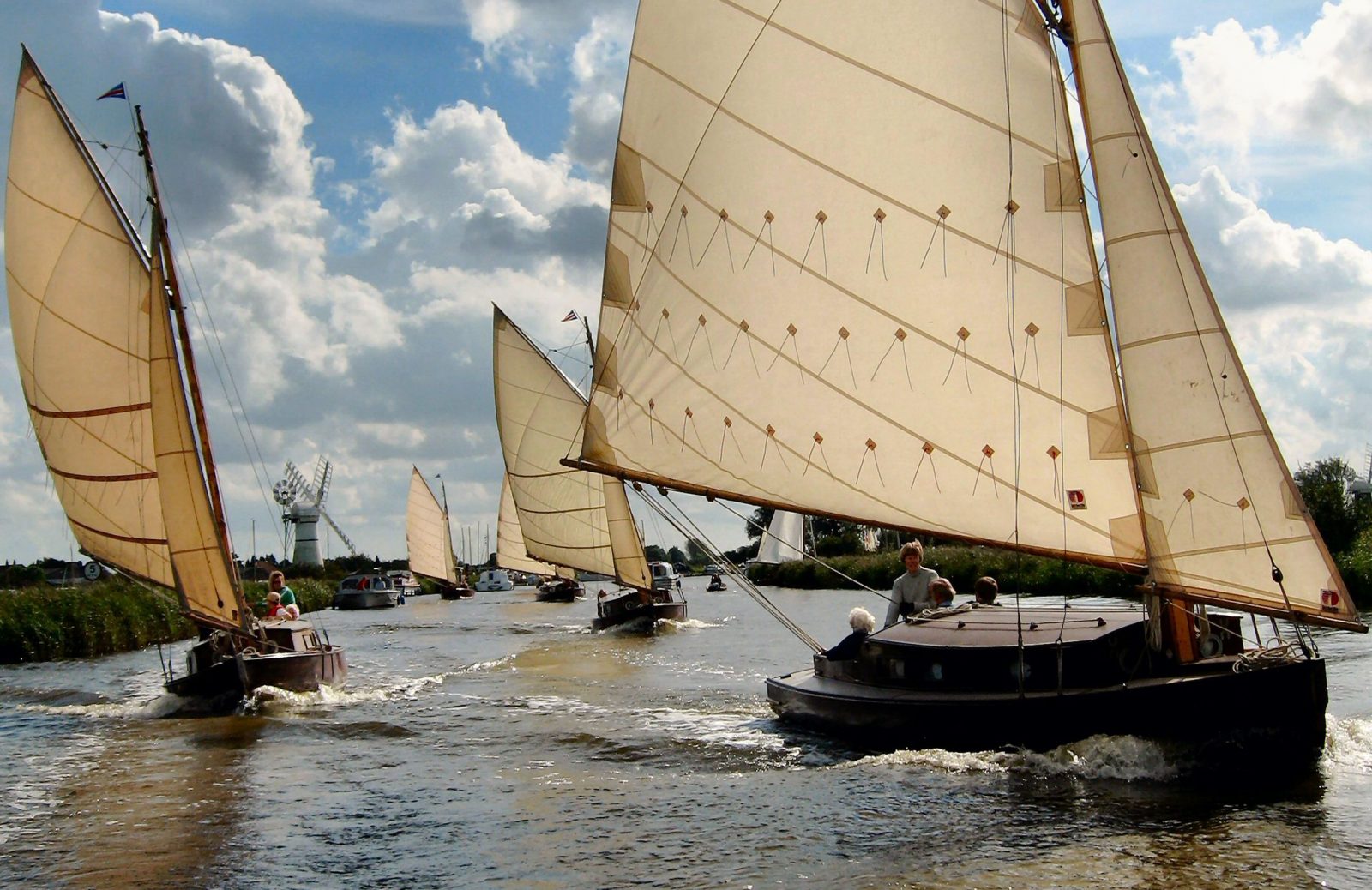
Ludham, UK (June 3, 2020) – Hunter’s Yard runs a rental fleet of traditional wooden sailboats on the Norfolk Broads in Eastern England with a loyal base of customers who share a common appreciation for the historic vessels and their way of life.
Sailors on the Broads have traditionally used long poles called quants to push the heavy wooden boats forward when the winds are unfavourable and to assist in manoeuvring through narrow waters or under bridges.
In recent years, Hunter’s Yard began to see a falloff in business as older customers found the rigours of quanting to be increasingly difficult, and younger families with children wanted the convenience of motorised propulsion. It became clear that auxiliary motors would be needed, but it had to be done in a way that would not affect the boats’ sailing characteristics or destroy their historical allure.
After a good deal of research, the Hunter’s Yard management installed a Torqeedo electric propulsion system on a trial boat.
The package consists of a Torqeedo Cruise 2.0 electric pod motor with a folding propeller, two Power 24-3500 batteries, fast charger, shore power box and control/display unit.
“We refer to it as an ‘electric quant’,” said Philip Bray, secretary of the Hunter’s Trust, which owns and operates the sailboat fleet.
The first electrified boat was an instant hit amongst renters, and additional boats were fitted with the same package the following year. Now the number is up to five, with more in the queue.
According to Bray the task of fitting the electric propulsion systems to 80-year-old wooden sailing boats presented challenges. “The boats were built to the unique Norfolk Broads pattern with flattish bottoms, a very shallow bilge, a long keel and a large oval rudder that swings through 360 degrees. In addition, they were built by eye by craftsmen without written plans or drawings, so the installations had to be very carefully thought out for placement of the internal components and connecting cables.”
Bray said that there was initially a great deal of resistance to the electric motors. “Our boats are very traditional and our customers likewise, and when the idea was first made public at the Annual General Meeting of the Friends of the Hunter Fleet in April 2016 there was a great drawing of breath that nearly sucked the roof down.”
It didn’t take long for minds to change. “Our customers obviously approve, because our bookings are increasing and the boats with engines are the first to be booked. There is a waiting list for them too.”
The Torqeedo systems are not used for prolonged motoring since the boats are intended for sailing. “When we installed the first boat, it was coming back after a week with typically 60 to 70 per cent of the charge remaining on the battery. Typically, we can fully recharge the boats in about two hours during the cleaning period on change-over days.”
Based on the positive experience with the initial installations, plans are underway to equip most of the fleet. “We have 14 cabin boats in three classes – two-berth, three-berth and four-berth – and our plan at the moment is to install engines in all but one of each class so that one of each is available for the purists.”
But he believes once the benefits are realised resistance will fade away, and all the boats will likely be motorised.
“After all, just because an engine is fitted it doesn’t have to be used.”
About Torqeedo:
Torqeedo is the market leader for electric mobility on the water. Founded in 2005 in Starnberg, the company develops and manufactures electric and hybrid drives from 0.5 to 100 kW for commercial applications and recreational use. Torqeedo products are characterized by an uncompromising high-tech focus, maximum efficiency and complete system integration. Torqeedo is part of DEUTZ Group, one of the world’s leading manufacturers of innovative drive systems. www.torqeedo.com
About Hunter’s Yard:
Founded by the Hunter family in 1933, the Hunter’s Yard is now operated by the Norfolk Heritage Fleet Trust. Friends of the Hunter Fleet, which was founded in 1996 to maintain a link with the many people who made donations to set up the Trust, acts as a user advisory group and helps support the work of the Trust in preserving the traditional skills of boat building and sailing. www.huntersyard.co.uk/
Panbo publishes select press releases as a service to readers and the marine electronics industry. The release contents do not reflect the opinion of the editors and are not fact checked by the editors






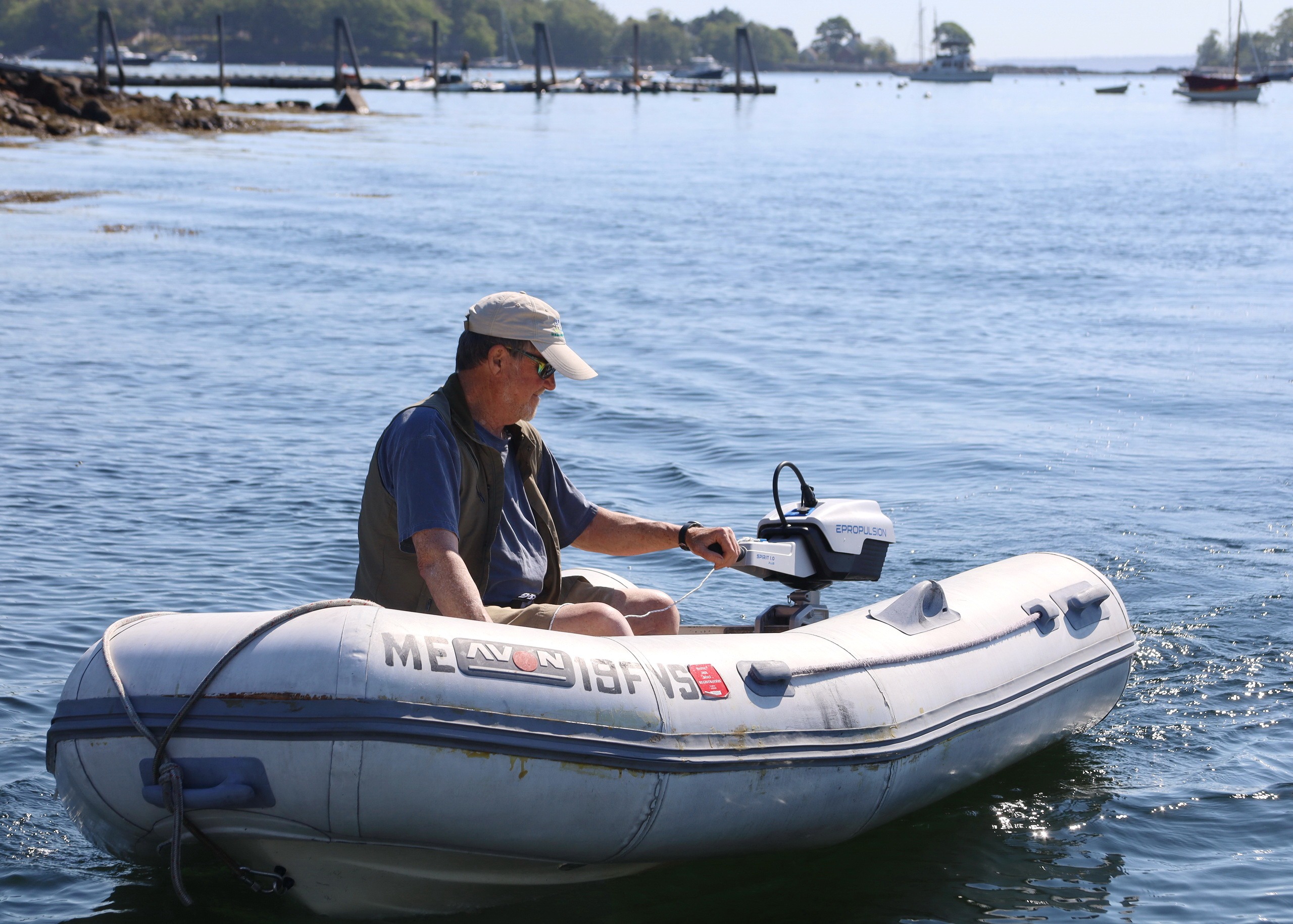
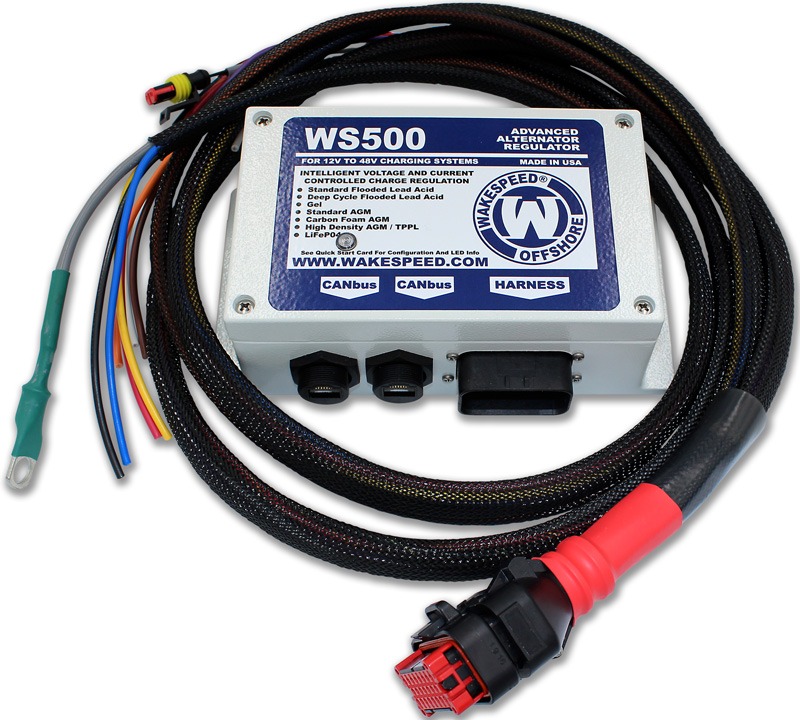
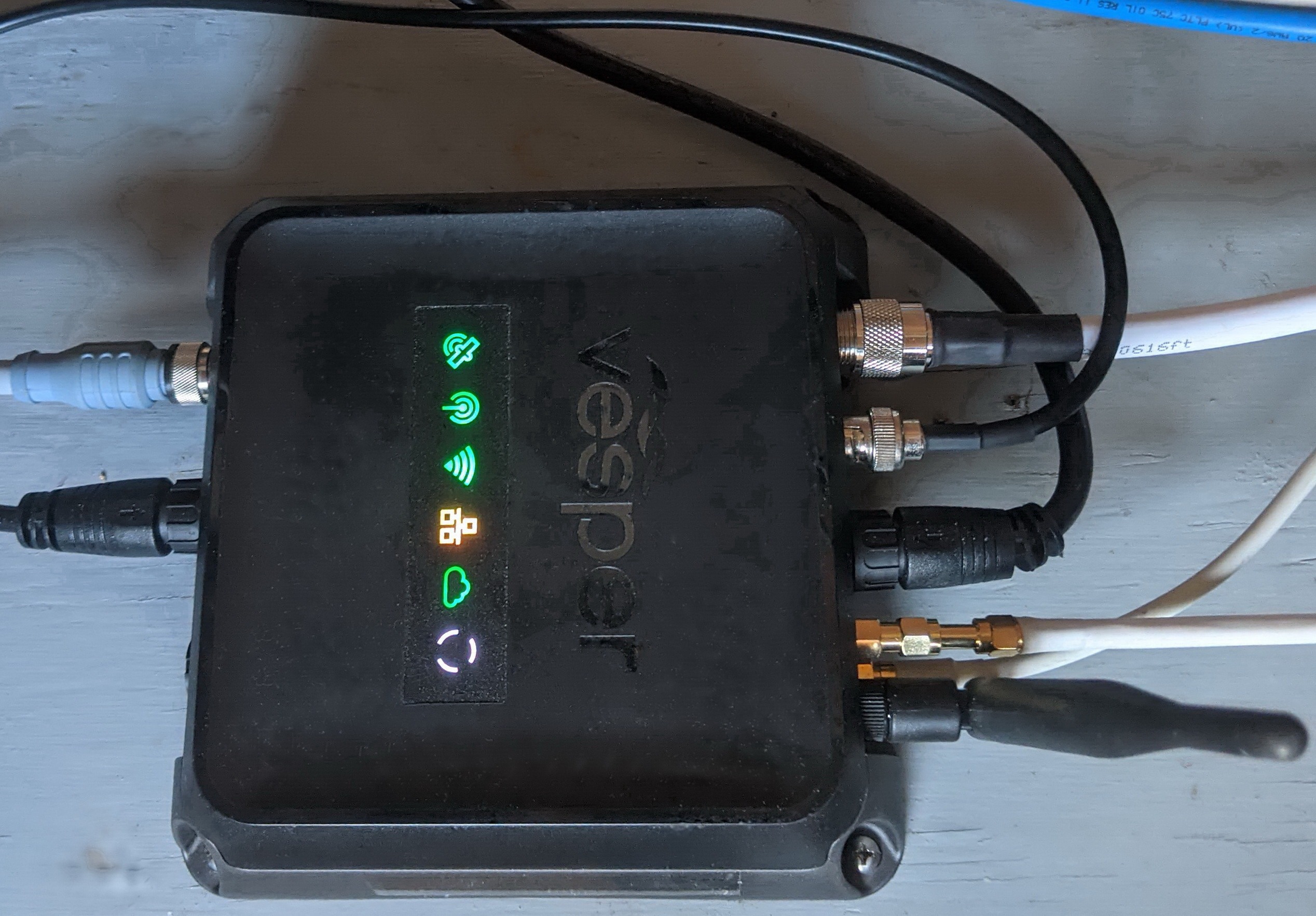
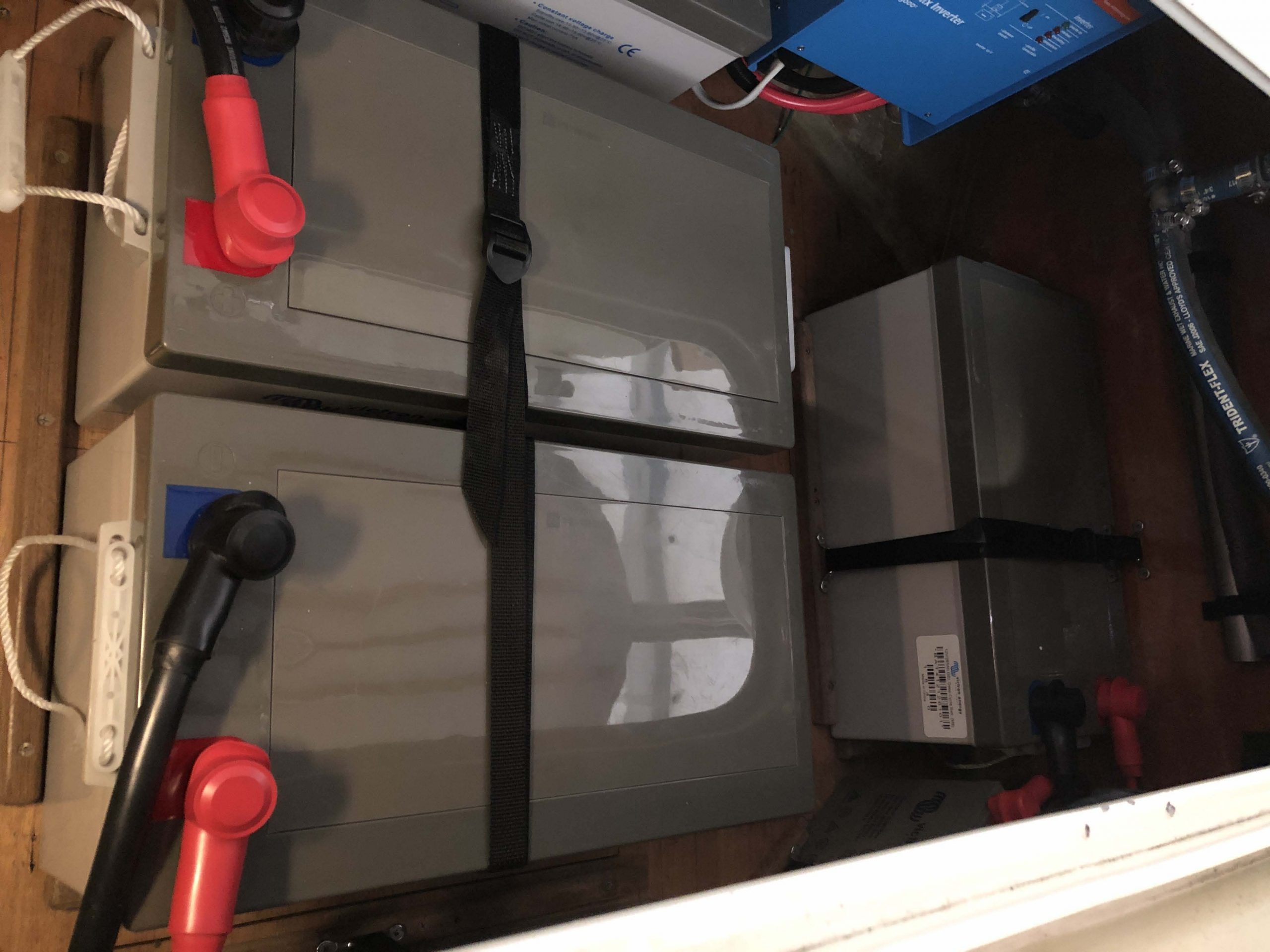







As much as I’d like to try my hand at quanting the Norfolk Broads, I love how well electric propulsion can work with traditional sailboats. Actually, Torqeedo is serving all sorts of interesting boat niches these days and it’s easy to take a tour here:
https://www.torqeedo.com/us/en-us/news-and-press/blog.html
Good to see the traditional Broads boats from Hunters featured. These are pretty much the only boats on the Broads that have resisted having engines fitted, so it really is a big deal.
We live and run our business in the Broads area but sail offshore on the East Coast of England. My inner geek loves reading your articles!